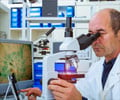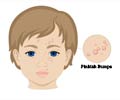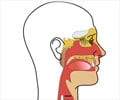Researchers at Washington University School of Medicine in St. Louis have found the control switches for immune cells that fight cancer, viral infection.
The control switches for immune cells that fight cancer, viral infection have been found by researchers at Washington University School of Medicine in St. Louis.
During the study, they showed that a single protein, HS1, enables key functions of natural killer (NK) cells, which kill early cancers and fight off viral infections.The protein allows the NK cells to pursue their targets, latch on to them and configure the cellular machinery it uses to kill them.
"Further study of how HS1 controls these processes may open up new possibilities for revving up the NK cells to fight infection and cancer," Nature quoted senior author John Cooper, M.D., Ph.D., professor of cell biology and physiology, as saying.
"We also may be able to use this same protein to inhibit the activities of other immune cells and prevent them from contributing to autoimmune conditions such as diabetes," he added.
Cooper has studied how different types of cells use a primary component of their skeletal system known as an actin network.
Previously, his laboratory had investigated the role of a protein called cortactin in specialized cells that break down bones.
Advertisement
Boyd Butler, Ph.D., a postdoctoral fellow in Cooper's laboratory and first author of the study said: "This bond is analogous to a plunger. The cell sits down on the bone, seals tightly, and then starts secreting the acid and other compounds that break down the bone."
Advertisement
They do not make cortactin but produce HS1, which is a very similar protein.
Butler decided to see what would happen to NK cells in human blood samples if he turned down their ability to make HS1.
The resulting cells were severely disabled. They couldn't effectively pursue target cells, bind to them or prepare to kill them.
"Tight regulation is very important to prevent NK cells from harming the body's own tissues. This ability to switch where the control signal goes makes HS1 a powerful regulator of NK cell activity-it allows the cells to provide just the right services at the right time," Boyd said.
The study is published in Nature Immunology.
Source-ANI
RAS/L















